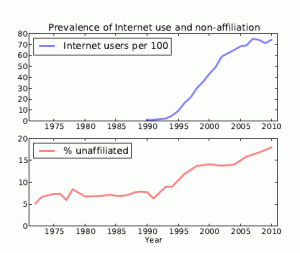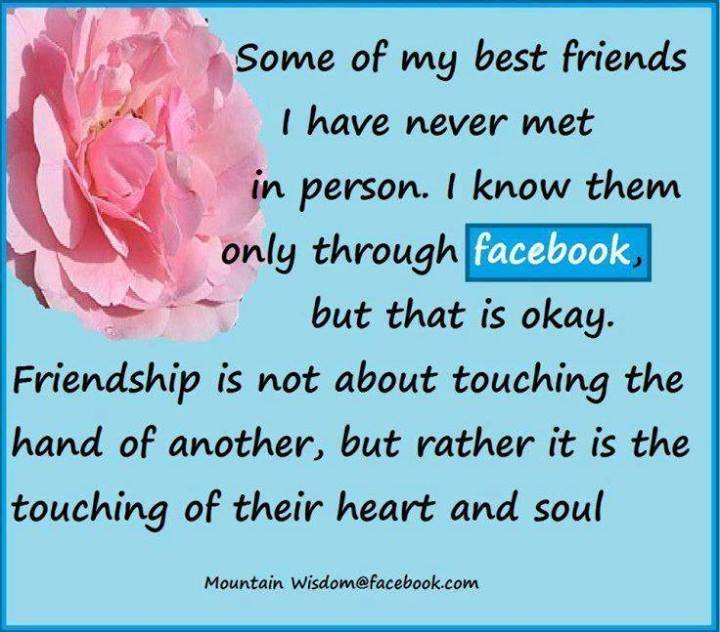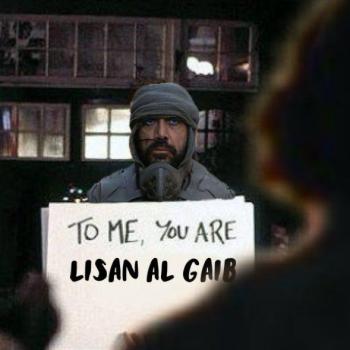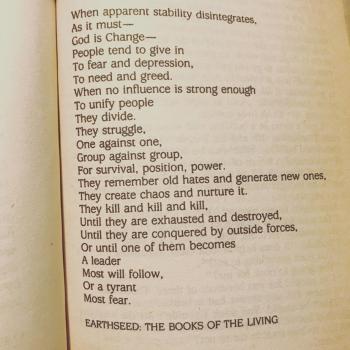There have been a lot of posts about a recent study which showed a correlation between increasing internet use and decreasing religiosity. Some of them have headlines about “the internet killing religion.”
 It is worth asking some hard questions: If religion can be eliminated by the internet, what was it, and is it something worth keeping?
It is worth asking some hard questions: If religion can be eliminated by the internet, what was it, and is it something worth keeping?
The truth is, however, that it is not at all clear that the internet is killing religion, and quite clear that the internet is not killing what we could broadly call spirituality.
Elizabeth Drescher recently looked at this subject, and asked the particularly relevant question of why people were religiously affiliated to begin with. Often, it was about community more than anything else. And to the extent that communities have shifted online, that would suggest that religion has been relocated rather than been eliminated by the internet.
Part of the problem is that some of us relatively older people see someone texting, ignoring those around them, and we perceive a breakdown of community. But the person who is texting is texting precisely because technology means they can connect with those who are truly important to them, irrespective of distance, rather than settling for whoever happens to be around them.
A generational gap may be the heart of the matter. Scot McKnight shared some research indicating that young adults have always tended to be less religious, and also to tend to find their way to faith communities as adults. Whether that patterns from the past will continue is anyone’s guest, but the pattern is definitely there. Allan Bevere offered some further thoughts from a mainline perspective. And Dominic Preziosi quipped that “there’s been handwringing over the weakening of interest in religion almost as long as there’s been organized religion.”
Tom Ehrich’s article also includes a lot of insight. Asked whether faith is in decline in America, he replied, “No, by all measures I’ve seen, Americans are as faith-filled, faith-interested or faith-seeking as ever. What people are losing is a desire to sit in a pew on Sunday morning.” And asked what the internet is doing for religion, he replied:
Saving religion’s bacon. The Internet is providing new tools for creative faith leaders to use. Blogs, e-letters, social media posts, videos, data management, Web conferencing, mobile apps — radically affordable, familiar to constituents, trusted and relatively easy to learn. They are making it possible for churches to reach people with an immediacy and intensity that they didn’t have before.
The problem is that, whereas key Christians embraced the printing press, some seem more reluctant to follow the latest technological changes where they are leading. As Scot McKnight notes, many churches seem locked into the framework of Christendom. Ironically, the pluralistic situation that churches now find themselves in is in some ways more like the setting in which Christianity first emerged.
The internet certainly does expose people to alternative viewpoints and information that may be at odds with what they have heard. But if anyone thinks either that that is unprecedented, or that the internet guarantees that people will encounter arguments that challenge their views effectively, they are incredibly naive.
Religion – or at least spirituality – is thriving, despite what you may have heard. But unless traditional congregations and buildings can connect to where and how it is thriving, they may be left behind and become obsolete during this cultural and technological shift.
If that happens, it will not have been something inevitable, but a serious missed opportunity.
Of related interest, Chaplain Mike blogged about why church is not where people go to “find God.” Allan Bevere blogged about why churchless Christianity doesn’t work. Ann Fontaine asked what will happen if your church never gets another member. At Jesus Creed, there were two posts about whether the best alternative to bad religion is good religion or no religion. See also a post on a progressive Christian’s conversation with his conservative Christian mother.
Finally, here are two images I came across online recently, for you to consider side by side…


One claims that “religions” die on the internet. The other suggests that people are making connections online which they have historically made in religious congregations. Can both be true? Or does it suggest that, while the internet may be supplanting the traditional form of religious communities, the shift online is anything but a death?












